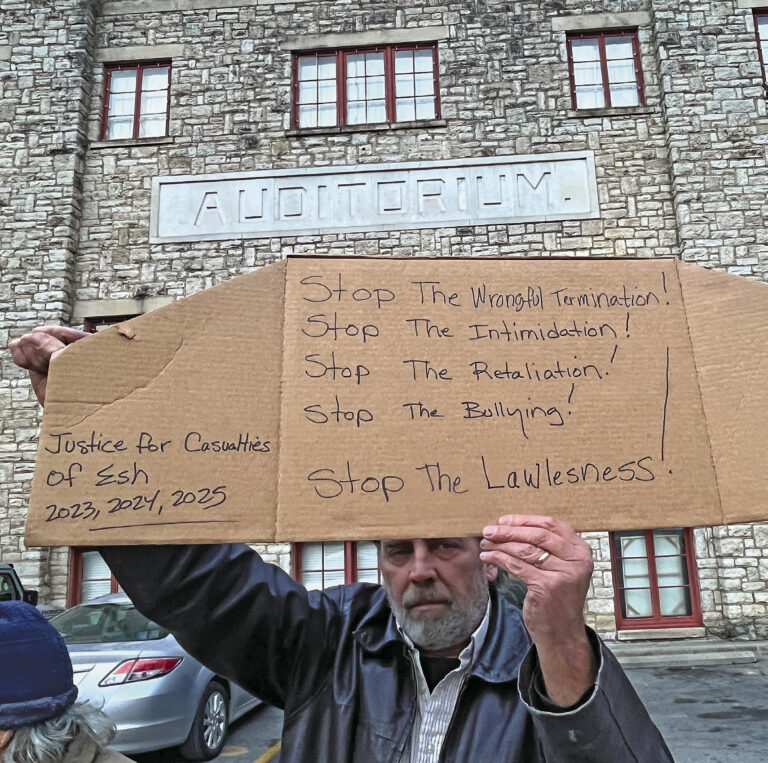State Sen. Bryan King emphasized the importance of government transparency during a town hall meeting he held Tuesday, June 10, at the Jasper High School gym in Newton County.
King told the audience that he has signed a pair of petitions seeking to have a proposed constitutional amendment and a proposed initiated act placed on the state’s November general election ballot. Both measures are aimed at protecting and preserving Arkansas’ Freedom of Information Act.
“I think that that should be protected for citizens and it helps keep me honest, to be honest with you,” King said.
King said he has signed the petitions seeking to get the proposed measures regarding FOIA on the November ballot.
“I have signed that and I would encourage everybody else to sign that, too,” he said.
Along those same lines, King was critical of recent changes that make it more difficult to get proposals on the ballot.
“It takes a lot to get signatures on the ballot now, and that’s something I have been frustrated about,” he said. “I came from an old-school Republicanism. As Ronald Reagan said, the best government’s the government’s closest to the people. … The more things you can vote on out there, the better I think it is.”
King told the audience that the legislature’s most important function is overseeing the state’s finances.
“We just got out of a budget session, and I tell people all the time, the most important thing that we do that people don’t pay attention to is how we budget money,” King said. “… If you want to see where the priorities lie in Little Rock, it’s how legislators vote with the money.”
King said funding the state’s education system is the biggest budget issue that legislators face, distributing a graphic that shows funding for the state Department of Education and public schools accounted for 41.6 percent of state spending after “off the top” deductions in 2022-23.
Arkansas’ shifting population means that rural areas are losing representation in Little Rock, King said.
“There’s probably about 10, 11 counties now that make up half the population in the state, so you have 10 counties versus 65,” he said. “… The rural legislators used to stick together. It didn’t matter what party you were. That’s getting to be a problem down there. A lot of rural legislators, I think, are giving ground when they really shouldn’t.”
That has had a ripple effect, not only on small rural schools but on legislators’ understanding of obstacles confronting officials in rural parts of the state.
“You look at our representation now, half the representation is from these populated areas that don’t understand what it’s like to deal with these issues or maybe have to do budgets that are shoestring budgets and not what we’re dealing with in some of these other counties.”
Among other issues King touched on were the state’s increasing Medicaid budget, the LEARNS Act and its long-term impact on the state budget, the practice of hiring out-of-state consultants at significant fees to the state government and the grass-roots effort in Newton County that appears to have staved off potential changes to the Buffalo River’s designation as a national river.
Also in attendance at the town hall was James Eaton, a Madison County justice of the peace who is running unopposed in the November election for the District 26 seat in the Arkansas House of Representatives. Eaton addressed the audience briefly, promising to be accessible to his constituents.

